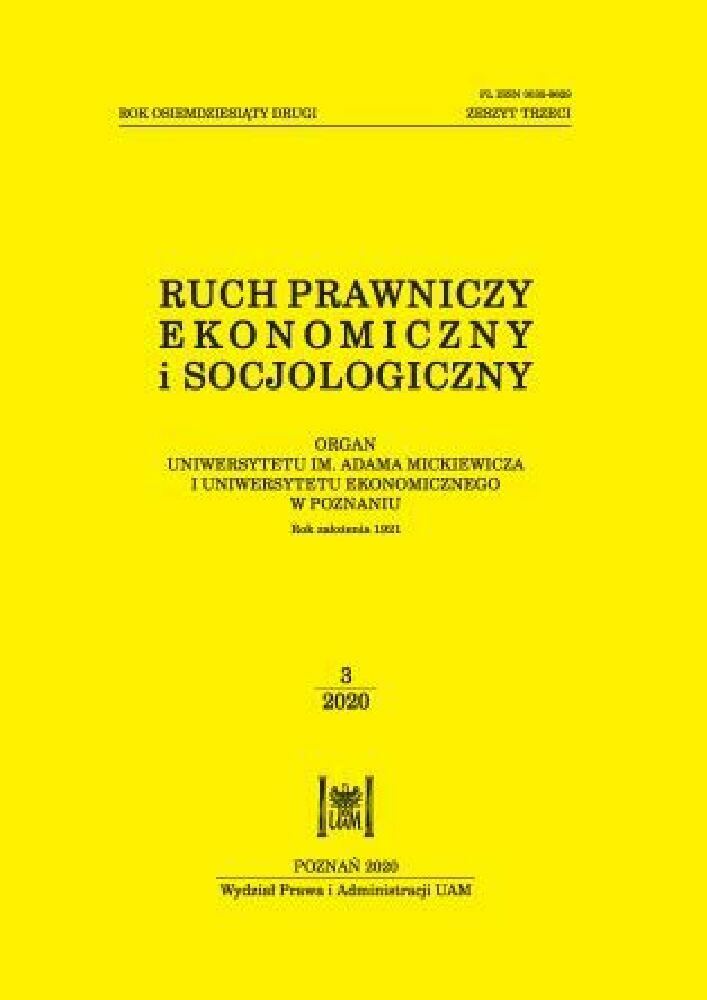Abstrakt
Jewish culture deals a lot with survival stories – most of them became myths, especially since the establishment of the state of Israel. The Jewish ‘survival ethos’ is assimilated in Israel mostly by customs, traditions, and education. Above all, it has been claimed that military service in the Israel Defence Forces (IDF) is the most significant institution that empowers the survival ethos. As a result, it is assumed that those who serve in the IDF are characterized by hatred towards Arabs, and by being extreme nationalists. This claim is examined in the current article, which analyses the level of the sense of security threat among Israelis during the last decade, draws on data on military service and levels of trust in Israeli government institutions, and reveals an essential finding: Israeli’s survival ethos is being eroded among IDF soldiers. This finding, followed by the fact that the leaders of the liberal party in the Israeli parliament are former military generals, indicates that military service in Israel does not empower extreme nationalism; on the contrary, service in the IDF has become a moderating social mechanism.
Bibliografia
Almog, A. (2014). The Israeli Y generation. Haifa: The Samuel Neaman Institute for National Policy. Technion.
Bar-Tal, D., Staub, E. (1997). Patriotism in the Life of Individuals and Nations. Chicago: Nelson-Hall.
Barkai, Z. (2007). The Influence of Army Duty on Fashioning Political Attitudes, (Doctoral thesis). Haifa: Haifa University.
Ben Eliezer, U., Al-Haj, M. (2006). In the name of defense. Haifa: Haifa University.
Ben-Dor, G., Lewin, A., Kanetti, D. (2013). The Social Component of National Strength. Haifa: Center for National Security Studies, Haifa University.
Ben-Dor, G., Lewin. E. (2017). Israel’s national resilience. Haifa: Center for National Security Studies, Haifa University.
Ben-Gurion, D. (1971). Uniqueness and Mission – Issues of Israeli Defense. Tel-Aviv: Ma’arakhot.
Colonimus, N., Bar-Tal, D. (2011). The Concept of Conflict Ethos and Military Duty among Choice Units. Tel-Aviv: The Public Space, Tel-Aviv University.
Elran, M. (2006). National Strength – Effects of the 2nd Intifada on the Israeli Society. Tel-Aviv: Jaffe Center for Strategic Research.
Gal, R. (1986). A Portrait of the Israeli Soldier. Santa Barbara: Greenwood.
Gal, R. (2000). Still Waiting in the Wings, [in:] C. Moskos, J. Williams, D. Segal, D. (eds.), The Postmodern Military. Oxford: Oxford University Press.
Grinberg, Y. (2001). A Fighting Nation. Beer-Sheva: Ben-Gurion University.
Harel, E. (2013). Every Hebrew Mother Should Know: The Image of the New IDF. Tel-Aviv: Kinneret,
Zmora-Bitan, Dvir.
Harman, T., Heller, A., Atmor, N., Level, Y. (2013). The Israel Democracy Index. Tel-Aviv: Israel Institute of Democracy.
Hensbacher, Y. (2018). This is how IDF loose it’s finest officers. MIDA 19.6.2018 <https://mida.org.il/2018/06/19>.
IDF Human Resources (2013). The motivation of reserve soldiers. IDF Department of Behavioral Sciences.
Itsik, R. (2013). Reserve Army Duty in Israel in View of Individualism (Thesis). Haifa: Haifa University.
Lewin E. (2013). Ethos clash, [in:] Israeli Society. London: Lexington.
Mann-Shalvi. H. (2016). From Ultra-Sound to the Army. Tel-Aviv: Wrestling.
Moskos, Ch.C., Williams, J.A., Segal, D.R. (2000). The Postmodern Military. Oxford: Oxford University Press.
Sasson-Levi, A. (2011). Women in a Professional Army: The Gender Implications of Moving towards a Professional Army in Israel. Tel-Aiviv: The Public Space, Tel-Aviv University.
Shelah, O. (2003). The Tray and the Silver: Why Do We Need a Revolution in the IDF. Tel-Aviv: Or-Yehuda, Kinneret, Zmora-Bitan, Modeen.
Shiftan, D. (2007). Strategic challenges for Israel towards its 60th anniversary, [in:] The Reader for the Course: Israel’s National Security. Tel-Aviv:…pp.
Stern, A. (2009). The Beret Trek: Navigation at Eye Level. Tel-Aviv: Miskal.
Tamari, D. (2012). The Armed Nation. Tel-Aviv: Ma’arakhot.
Tishler, A., Hadad, S. (2011). Compulsory Army Service Versus a Professional Army – The Effect of the Manner of Recruitment on Israel’s Military Strength. Caesarea: Caesarea Forum.
Vest, B.M. (2012). Citizen soldier or citizen-soldier – negotiating identity in the U.S National Guard. Armed Forces and Society 39(4): 602–627. doi:10.1177/0095327X12457725.
Yaalon, M. (2008). A Long-short Way. Tel-Aviv: Miskal.
Yair, G. (2011). The Code of Israelism: The Ten Commandments of the Years 2000. Jerusalem: Keter.
Zigdon, Y. (2008). Deliberation in the Theory of Establishing Power. Tel-Aviv: Ma’arakhot.
Licencja
Prawa autorskie (c) 2020 WPiA UAM

Utwór dostępny jest na licencji Creative Commons Uznanie autorstwa – Użycie niekomercyjne – Bez utworów zależnych 4.0 Międzynarodowe.





